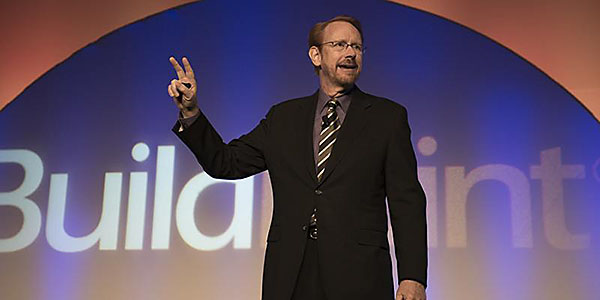
The Harvard Business Review says that Market Basket is a profitable family-owned regional chain of 71 supermarkets in Massachusetts, New Hampshire, and Maine, with around 25,000 employees. According to Forbes, it’s the 127th-largest private company in the United States, with $4.6 billion in revenue.
But today, as I write, the Market Basket in Somerville, MA where I live is doing hardly any business at all. The reason? Most of the workers—and many customers—are outside. As Bloomberg reports:
Thousands of the supermarket chain’s employees have organized rallies at their local stores and at the company’s headquarters during the last week. Were these employees rallying for higher wages, better benefits, and predictable schedules — the needs so many retail employees face? No, they were demonstrating to help their ousted CEO, Arthur T. Demoulas, get his job back (he was fired in June after [a] coup led by his cousin, Arthur S. Demoulas).
How to win loyalty from your employees
Why do workers at Market Basket care so much about who runs the company? They see the issue as what kind of company they work for. Most supermarkets run on the labor of teens, retirees, and recent immigrants. They pay their workers poorly and replace them often.
In contrast, Market Basket hires from those groups AND from longtime local residents. They pay decent wages and they give regular bonuses–like a Wall Street firm that sells cheese.
Everyone who works there knows the deposed president, whom they call “Artie T.” He knows them too, and their names, and the names of their children. “He’s been to my kids’ weddings, my mother’s funeral, his sisters came to my mother’s funeral, to my brother-in-law’s funeral,” Michael King, Market Basket’s controller, told the New York Times.
As a result, many Market Basket employees have worked for the company for decades. They see it as their company. They work to keep up its reputation. And they are furious that the new management threatens not only their long-term future at Market Basket but the brand they (more than management) have created.
As Hubspot’s Lindsay Kolowich points out, this all poses a question: “Would Your Employees Care If You Were Fired?”
How to win loyalty from your community
It’s not only supermarket employees who are staying out of the store. It’s customers.
For years, Market Basket kept its prices low. Its own employees and working people like them could afford to shop there. It also offered products its customers wanted. In Somerville, where there are many Latino shoppers, there’s a whole aisle devoted to Goya foods.
Customers shopped loyally at what many of them called “Demoula’s,” but now, they are going elsewhere. Some are showing up at Market Basket only to paste their cash register receipts from Star Market or Stop & Shop to the supermarket windows, in protest.
Customers clearly care about the culture of Market Basket more than they do about the prices.
An old-fashioned business, or a model for the 21st century?
Some might say the Market Basket protests are a fit of nostalgia. Family-owned businesses belong to the past, and responsibility to your staff and your community is an outdated notion. All that really matters is making a profit and returning value to investors.
Market Basket, other businesses, and nearly all nonprofit organizations show this argument is wrong. The single-minded pursuit of profit is so late-20th century! People do care about the culture of an organization, and even about its mission. It is possible to bring in more revenues than expenses and still create an atmosphere where people are proud to work and happy to shop.
The Market Basket story could still have a tragic ending. The protests could cost the chain so much money it goes out of business. Arthur T. could win control at such a price that he’d be forced to change some of the policies that have made people support him to begin with.
No matter what happens at Market Basket, you can learn from its example. What would it be worth to you to possess that kind of loyalty? What could you today to start earning it?





2 thoughts on “Who Cares About Your Company?”